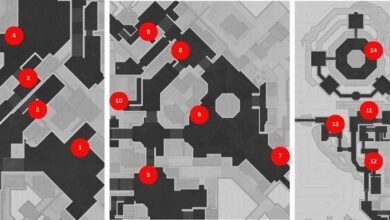
The Korea Communications Commission (KCC) is a pivotal institution in South Korea responsible for regulating and overseeing the country’s communication and broadcasting sectors. Established to ensure fair and efficient communication services, the KCC plays a crucial role in shaping the media landscape and promoting public interests. This blog post provides a comprehensive look at the KCC, including its functions, structure, and significance in South Korea.
Table of Contents
ToggleWhat is the Korea Communications Commission?
The Korea Communications Commission (KCC) is a government agency responsible for the regulation and oversight of communication and broadcasting industries in South Korea. Its primary mission is to ensure that communication services are provided fairly, efficiently, and in the public interest. The KCC’s mandate covers a wide range of activities, from regulating media content to managing spectrum allocation and protecting consumer rights.
History and Establishment
Formation and Evolution
The KCC was established in 2008, succeeding the former Korea Broadcasting Commission and the Korea Communications Commission, which were combined into a single body. This reorganization aimed to streamline regulatory functions and enhance the efficiency of communication and broadcasting oversight. The KCC’s formation marked a significant step in modernizing South Korea’s approach to media regulation and communication management.
Legislative Framework
The KCC operates under various laws and regulations designed to govern the communication and broadcasting sectors. Key legislation includes the Broadcasting Act, the Telecommunications Business Act, and the Act on the Promotion of Information and Communications Network Utilization and Information Protection. These laws provide the legal framework for the KCC’s activities and ensure that its functions align with national interests and international standards.
Key Functions of the KCC
Regulating Broadcasting and Media
The KCC is responsible for regulating South Korea’s broadcasting and media sectors. This includes overseeing television and radio broadcasts, managing content standards, and ensuring compliance with broadcasting laws. The KCC monitors media content to prevent the spread of misinformation and ensure that programming meets ethical and legal standards.
Managing Spectrum Allocation
Spectrum management is a crucial function of the KCC. The organization is responsible for allocating and managing the electromagnetic spectrum used for telecommunications and broadcasting. This includes assigning frequency bands, coordinating with international organizations, and ensuring that spectrum usage is optimized for efficiency and minimal interference.
Licensing and Oversight
The KCC issues licenses for various communication and broadcasting services, including television networks, radio stations, and telecommunications providers. It also monitors and enforces compliance with licensing conditions to ensure that service providers operate in accordance with regulatory requirements.
Protecting Consumer Rights
Consumer protection is a key focus of the KCC. The organization works to safeguard the rights of consumers by addressing complaints, regulating service quality, and promoting transparency in the communication and broadcasting sectors. The KCC also provides resources and information to help consumers make informed choices about communication services.
Promoting Innovation and Competition
The KCC is committed to fostering innovation and competition within the communication and broadcasting industries. It encourages the development of new technologies, supports market competition, and implements policies to promote fair and competitive practices. This helps ensure that consumers benefit from a diverse range of services and competitive pricing.
Organizational Structure
Commission Members
The KCC is governed by a commission consisting of nine members, including a chairperson and eight commissioners. These members are appointed by the President of South Korea and serve staggered terms. The commission is responsible for making key decisions on policy, regulation, and enforcement.
Secretariat and Divisions
The KCC’s daily operations are managed by a secretariat and various divisions, each responsible for specific areas of regulation and oversight. These divisions include departments focused on broadcasting, telecommunications, spectrum management, and consumer protection. The secretariat supports the commission by coordinating activities, managing resources, and facilitating communication between different divisions.
Regional Offices
To enhance its effectiveness, the KCC operates regional offices across South Korea. These offices provide localized support and oversight, helping to address regional issues and ensure that KCC policies are implemented consistently throughout the country.
Impact of the KCC
Ensuring Quality and Fairness
The KCC’s regulatory activities play a vital role in maintaining the quality and fairness of communication and broadcasting services in South Korea. By enforcing content standards, managing spectrum allocation, and overseeing service providers, the KCC helps ensure that consumers receive reliable and high-quality services.
Supporting Technological Advancement
The KCC’s focus on innovation and competition contributes to the advancement of communication technologies in South Korea. By promoting the development and adoption of new technologies, the KCC helps drive progress in areas such as broadband internet, digital broadcasting, and mobile communications.
Protecting Public Interests
The KCC’s efforts to protect consumer rights and prevent the spread of misinformation contribute to the overall well-being of South Korean society. By addressing complaints, regulating service quality, and ensuring transparency, the KCC helps safeguard the interests of individuals and communities.
Enhancing International Cooperation
The KCC engages in international cooperation to address global communication and broadcasting challenges. By participating in international forums and collaborating with regulatory bodies from other countries, the KCC helps ensure that South Korea’s communication policies align with global standards and best practices.
Challenges and Future Directions
Adapting to Technological Changes
The rapid pace of technological advancement presents challenges for the KCC. As new technologies emerge, the KCC must adapt its regulatory approaches to address issues such as cybersecurity, data privacy, and the convergence of communication services. This requires continuous monitoring and updating of regulatory frameworks to keep pace with technological developments.
Balancing Regulation and Innovation
Finding the right balance between regulation and innovation is an ongoing challenge for the KCC. While regulation is essential for ensuring quality and fairness, excessive regulation can stifle innovation and competition. The KCC must navigate this balance to promote a dynamic and competitive communication and broadcasting environment.
Addressing Consumer Complaints
Effectively addressing consumer complaints and ensuring high service quality can be challenging, especially in a rapidly evolving market. The KCC must remain responsive to consumer concerns and implement effective measures to resolve issues and improve service standards.
Conclusion
The Korea Communications Commission (KCC) plays a critical role in regulating and overseeing South Korea’s communication and broadcasting sectors. Through its various functions, including regulating media, managing spectrum allocation, and protecting consumer rights, the KCC ensures that communication services are provided fairly and efficiently. As technology continues to evolve, the KCC faces ongoing challenges but remains committed to promoting innovation, competition, and public interests. Understanding the KCC’s role and impact highlights the importance of effective regulation in maintaining a dynamic and equitable communication landscape.





